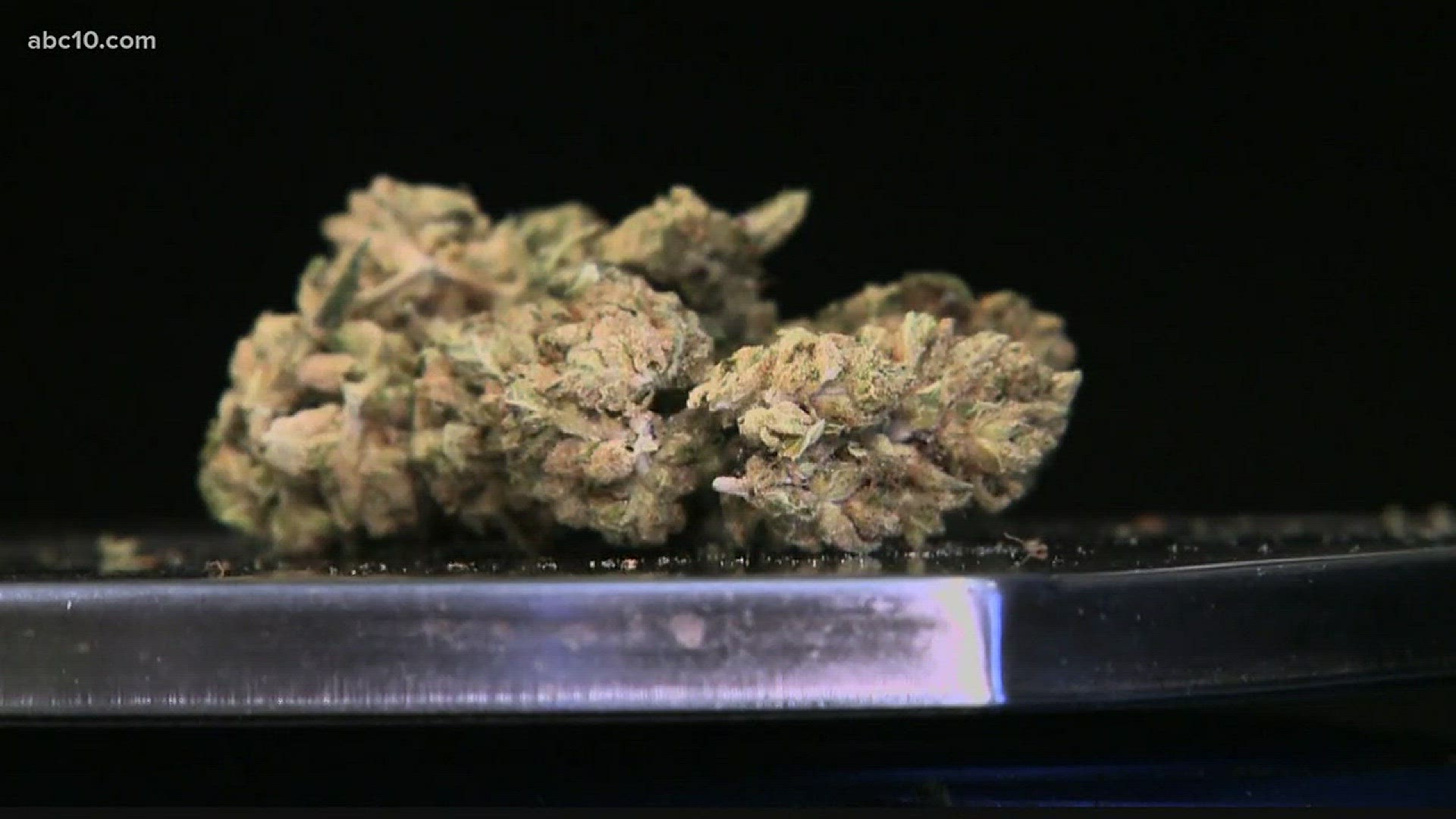One by one, California agencies are launching their licensing and permitting systems for cannabis-related businesses looking to legalize.
Jeff Hatley has been testing cannabis products for safety and quality since 2011 with his Sacramento business Sequoia Analytical Labs.
"We find things like russet mites, molds, funguses, things like that. We even find bug poop," he said, gesturing to a microscope in his company's lab. "If you're already health-compromised, you don't need anything like mold, yeast or E.coli or salmonella. That's very dangerous for you."
Despite running a successful company for some six years, only in recent weeks has Hatley been able - for the first time - to legally apply for a business operating permit with the city of Sacramento.
"This is really huge tax money for the state of California, and the industry really needs to come out of the dark and be legalized and be safe," said Hatley. "There are so many patients that need this medicine and they need to make sure it's safe for them to take and that the dosage is correct and that it's labeled correctly."
Cannabis-related businesses coming into compliance range from testing labs and growers to manufacturers and dispensaries, some of which have been operating illegally or unregulated for years. Coming into compliance for established business is difficult enough, but for brand new cannabis-related entrepreneurs there are the added costs of a startup.
Shelby Lucero owns Greenway Commerce, a cannabis business compliance consulting firm.
"Some people...call us on the phone and they say, 'Hey, I'm looking into getting into cannabis cultivation. How much do you think we're going to need?' They're going to need at least $250,000 to $500,000. Quarter-million to half-a-million dollars, easy," said Lucero. "To buy a building to lease it, to build it out, you have your own equipment, you have employees, you know, you have to have insurance, you have to have a security system, you have to have a device so it doesn't smell in the neighborhood, and then you have to figure out banking."
She's extra busy these days as new and established cannabis businesses alike ask her how they can become legal now that the state and certain cities are allowing it.
"I think it's really kind of a breath of fresh air for a lot of people who are really kind of getting in their car, looking in their rearview mirrors, wondering who saw them put their package in the trunk kind of thing, or if they know that they have to go to a bank or they're carrying money," she said. "It's an industry that definitely needs regulation, for sure."
"It's a long-time coming and I'm really excited about it," said Betsy Gribble with Sequoia Analytical Labs.
Legalization means regulation, she said, which means tainted cannabis faces more barriers.
"With the rigorous testing, then we can catch that sort of thing and make sure that those products don't make it to the shelves," Gribble added.
The California Secretary of State's office enlisted the help of comedian and cannabis advocate Cheech Marin, of comedy duo Cheech and Chong, in a video released this week, touting its new online cannabis business registry website.
Cannabis businesses must register there, as well as on the local level and at one of three different state departments, depending on which sector of the industry the corporation serves.
The Bureau of Cannabis Control, through the Department of Consumer Affairs, licenses testing labs, distributors, retailers and micro-businesses. The California Dept. of Agriculture's CalCannabis Cultivation Licensing Program licenses cannabis cultivators and administers the Track-and-Trace system. Also, the Manufactured Cannabis Safety Branch of the Dept. of Public Health licenses manufacturers of cannabis products, such as edibles -- all according to an "FAQ" page on the Secretary of State's website.
In addition, cannabis businesses must register with the appropriate taxation agencies.
Greenway Commerce is hosting a bootcamp for interested cannabis entrepreneurs. They'll gather accountants, lawyers, lobbyists and other cannabis industry experts to give business-owner-hopefuls step-by-step instructions for opening a cannabis-related company in the state of California.
"I think regulation is a good thing. It provides money for our communities on the local level, state level and even the federal government, even though they don't like it," said Alex Harritt, of Greenway Commerce.
The U.S. Drug Enforcement Administration considers marijuana (cannabis) a Schedule I drug. Heroin and LSD are also on that list.
"Drugs, substances, and certain chemicals used to make drugs are classified into five (5) distinct categories or schedules depending upon the drug’s acceptable medical use and the drug’s abuse or dependency potential," the DEA's website said. "Schedule I drugs have a high potential for abuse and the potential to create severe psychological and/or physical dependence."
Joe Devlin, Sacramento's so-called Pot Czar, oversees the city's Office of Cannabis Policy and Enforcement. He told ABC10 on Tuesday that of the city's 30 existing medical marijuana dispensaries - and the council has capped the number of storefront dispensaries - only about 10 have expressed interest in selling adult-use cannabis, too.
In theory, he said, those 10 would be able to sell recreational cannabis starting Jan. 1, as long as they get all their licenses and permits in place by then, and time is running short.
"I think this whole thing is going to be much more of a process than an event," said Devlin, debunking mental images of people lined up outside pot shops on New Year's Day. "We haven't had much lead time to kind of put all of this together."
While Prop 64 passed last year, Devlin said, the state just merged the rules in June, "and we just got the draft regulations, like, two weeks ago," he said.
For cities and counties opting to allow adult-use cannabis, Devlin said, policy will grow and evolve with time.

